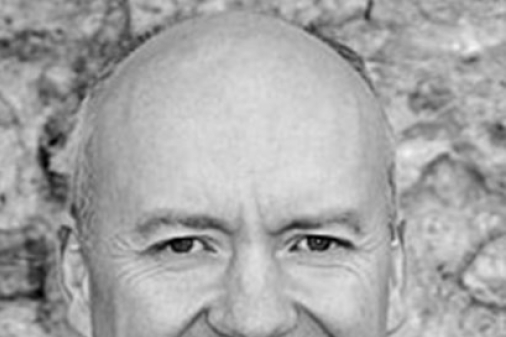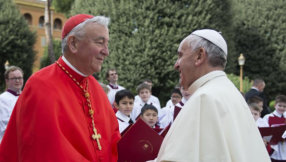A vicar in Oxfordshire has been convicted by the Church of England of spiritually abusing a teenage boy, in what is thought to be the first judgment of its kind, the Church Times reported.
The victim was put under 'unacceptable pressure' during one-to-one Bible study sessions in his bedroom over an 18- month period, according to the judgment which was published online by the Church.
The priest, Timothy Davis, of Christ Church, Abingdon, was found guilty under the Clergy Discipline Measure (CDM) 2003 of 'conduct unbecoming or inappropriate to the office and work of a clerk in holy orders through the abuse of spiritual power and authority' by a five-strong Bishop's Disciplinary Tribunal for the Oxford diocese, chaired by the Revd Mark Bishop. A penalty has yet to be set.

The CDM tribunal is reportedly the first of its kind that has found a case to answer over allegations of the abuse of spiritual power and authority.
The complaint was brought by the Archdeacon of Dorchester, Judy French, in 2013, and referred to a period of 18 months from January 2012, during which Davis held private mentoring sessions with a 16-year-old schoolboy, whose family were part of his congregation, as part of a youth scheme set up by the youth pastor of Christ Church, Matt Luscombe.
The case was heard in November last year by a panel which was chaired by Judge Bishop and included the Rev Edward Bowes-Smith, Canon Ann Philp, Prebendary Sue Lloyd, and Dr Stephen Longden.
Those who gave evidence to the panel included the Bishop of Dorchester, Colin Fletcher, the victim (who cannot be named for legal reasons) and victim's mother, and the former assistant curate at Christ Church, Jitesh Patel.
The 20-page judgment found that Davis had engaged in 'mentoring so intense' that the victim had been 'deprived of his freedom of choice as to whether to continue' with it.
At one point. Davis moved in with the family, who reportedly wanted to help him during a period of loneliness and illness. He later holidayed with them in Crete, which led to concerns from the congregation as to the 'intensity of the contact' between mentor and mentee, and the involvement of the Bishop of Reading, Andrew Proud.
In January 2015 Davis took a sabbatical, after which the Bishop was alerted by the curate, Patel, who had been told by Davis of the nightly, hour-long, private meetings he had conducted with the victim. Patel gave evidence of Davis's 'anger and the fear that his curate felt as a result'.
Davis was later asked to move out of the family home by Bishop Fletcher, who conducted a meeting with Davis about safeguarding concerns, before asking Archdeacon French to investigate and decide whether a formal complaint should be pursued.
Judge Bishop determined that Davis was 'in breach of the safeguarding requirements' by being alone with the boy in his house, in the vicarage, or other places, 'and on occasions deliberately touching him albeit not in a sexual manner'.
Davis was also judged to have, 'under the guise of his authority, sought to control by the use of admonition, scripture, prayer and revealed prophecy, the life' of the victim and his relationship with his girlfriend, and 'throughout the said period failed to have any regard to the propriety of the said conduct' and its effect on others, in particular the victim.
The victim was reported to have found these meetings 'too intense', but 'found it impossible' to tell Davis that he wanted to reduce their contact. He also gave evidence saying that Davis 'became angry' if he did not ring him or respond to his texts, and 'he would say that this is not what friends did'.
The victim's mother also reported that Davis became angry regarding contact with her son on numerous occasions. 'He would be angry if [her son] did not come to an evening service because of being with his girlfriend,' the judgment reads. 'She told us that [Davis] would say that he was God's anointed, and a person had died because he did not do something that [Davis] wanted.'
She further gave evidence of how Davis had 'invested the will of God in the relationship he had with the family in broad terms, and her fear of what would happen if she crossed [him] and thereby, in her understanding at the time, crossed the will of God'.
The parish-mentoring-scheme documents included stipulations that the mentors abide by church safeguarding policy; that 'an adult should not be left alone with a child/young person where there is little or no opportunity of the activity being observed by others'; and that counselling via text, email, instant messaging, or phone should be avoided.
Davis was formally suspended by the diocese of Oxford on 25 July 2016, a spokesperson confirmed.
Davis had been diagnosed with PTSD [post-traumatic stress disorder] in September 2016, according to a psychiatrist who is quoted in the report.
The panel considered Davis's mental health in mitigation, but concluded: 'Rather than getting diagnosed and treated he proceeded with this risky mentoring programme where we believe he was placing his own emotional needs first.'
Davis disputed many elements in the account given by the boy and his mother in his statement to the tribunal. But the panel found the boy and his mother 'credible and reliable witnesses', and was satisfied with their account.
A spokesperson for the diocese of Oxford said in a statement: 'Abuse of spiritual authority and power falls far short of the obligations and duties of those in holy orders. Clergy are in a privileged position of trust in their congregations and communities. The professional guidelines to which they are bound make clear that this is a trust that they must not abuse.
'The findings of the tribunal show that, sadly, Tim Davis betrayed the trust of everyone involved in a youth-mentoring programme at Christ Church, Abingdon – none more so than the young man and his family, who offered their home and hospitality to him.
'The behaviour and actions of Tim Davis during this period are in no way reflective of acceptable church practice. We fully support the findings of the tribunal and now await their decision as to the penalty to be imposed.'
A date for a hearing at which a penalty will be issued has yet to be set.













